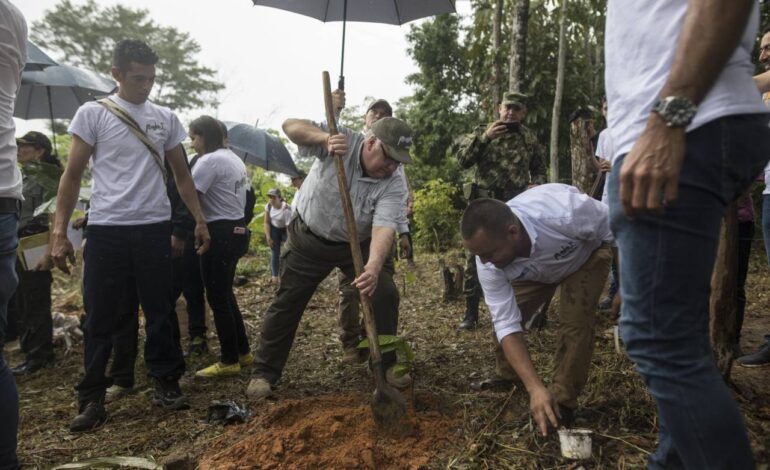Howard Buffett Tackles Colombia’s Cocaine Crisis with Crop Alternatives

Howard Buffett, son of renowned investor Warren Buffett, is actively addressing Colombia’s escalating cocaine trade by funding initiatives aimed at encouraging drug farmers to transition to legal crops. His efforts are part of a broader strategy to combat the narcotics industry, which has become increasingly entrenched in various regions of Colombia.
Buffett’s initiatives focus on sustainable agriculture, providing farmers with resources and training to cultivate alternative crops. The programs emphasize the importance of developing a viable economic framework that can replace the profitability of coca farming. “We’re trying to chip away at it,” Howard Buffett stated, highlighting his commitment to finding long-term solutions.
Strategies for Change
The program has gained traction since its inception in 2016, and its impact is becoming more evident. Through partnerships with local non-profit organizations, Buffett’s initiatives have reached farmers in several Colombian regions, including Antioquia and Norte de Santander. The projects aim to improve livelihoods while reducing reliance on illicit drug production.
Farmers participating in these programs are provided with the tools necessary to cultivate crops such as cacao, coffee, and fruits, which have stronger market potential compared to coca. In addition to training, the initiatives offer financial support and access to markets, enabling farmers to sell their products more effectively.
According to the United Nations Office on Drugs and Crime (UNODC), coca cultivation in Colombia reached an estimated area of 230,000 hectares in 2022. This statistic underscores the scale of the challenge Buffett and his collaborators are facing. However, they are optimistic that with continued investment and community engagement, a shift towards legal agriculture is possible.
Community Involvement and Future Prospects
Community involvement is crucial for the success of these programs. Buffett’s team works closely with local leaders to raise awareness about the benefits of shifting away from coca farming. This grassroots approach not only fosters trust but also encourages participation among farmers who may view legal crops as less profitable or viable.
Buffett’s commitment extends beyond financial investment; he aims to create a sustainable model that can be replicated in other regions affected by drug production. His goal is to demonstrate that economic alternatives can lead to a significant decrease in coca cultivation, ultimately contributing to the stabilization of communities affected by the drug trade.
While challenges remain, including the need for ongoing support and the risk of farmers reverting to coca cultivation, the potential for change is evident. Howard Buffett’s initiatives represent a proactive approach to a longstanding issue, showcasing the role that sustainable agriculture can play in combating the cocaine trade.
In summary, Howard Buffett is making strides in Colombia’s fight against the booming cocaine trade through innovative programs that encourage legal crop production. His efforts reflect a growing recognition of the need for sustainable solutions to complex social and economic issues tied to the narcotics industry.





